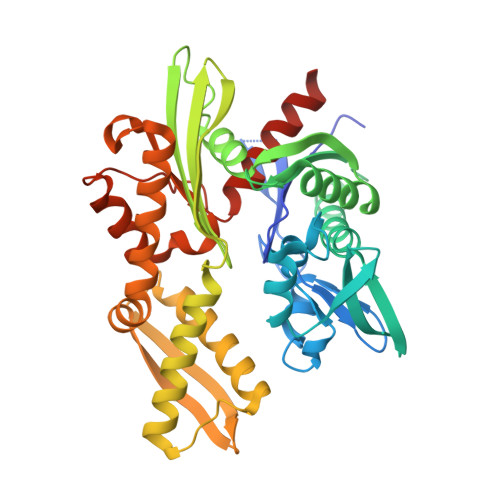Exploiting Protein Conformational Change to Optimize Adenosine-Derived Inhibitors of Hsp70.
Cheeseman, M.D., Westwood, I.M., Barbeau, O., Rowlands, M.G., Dobson, S., Jones, A.M., Jeganathan, F., Burke, R., Kadi, N., Workman, P., Collins, I., Van Montfort, R.L.M., Jones, K.(2016) J Med Chem 59: 4625
- PubMed: 27119979
- DOI: https://doi.org/10.1021/acs.jmedchem.5b02001
- Primary Citation of Related Structures:
5AQZ, 5AR0 - PubMed Abstract:
HSP70 is a molecular chaperone and a key component of the heat-shock response. Because of its proposed importance in oncology, this protein has become a popular target for drug discovery, efforts which have as yet brought little success. This study demonstrates that adenosine-derived HSP70 inhibitors potentially bind to the protein with a novel mechanism of action, the stabilization by desolvation of an intramolecular salt-bridge which induces a conformational change in the protein, leading to high affinity ligands. We also demonstrate that through the application of this mechanism, adenosine-derived HSP70 inhibitors can be optimized in a rational manner.
Organizational Affiliation:
Cancer Research UK Cancer Therapeutics Unit, The Institute of Cancer Research , London SW7 3RP, U.K.


















